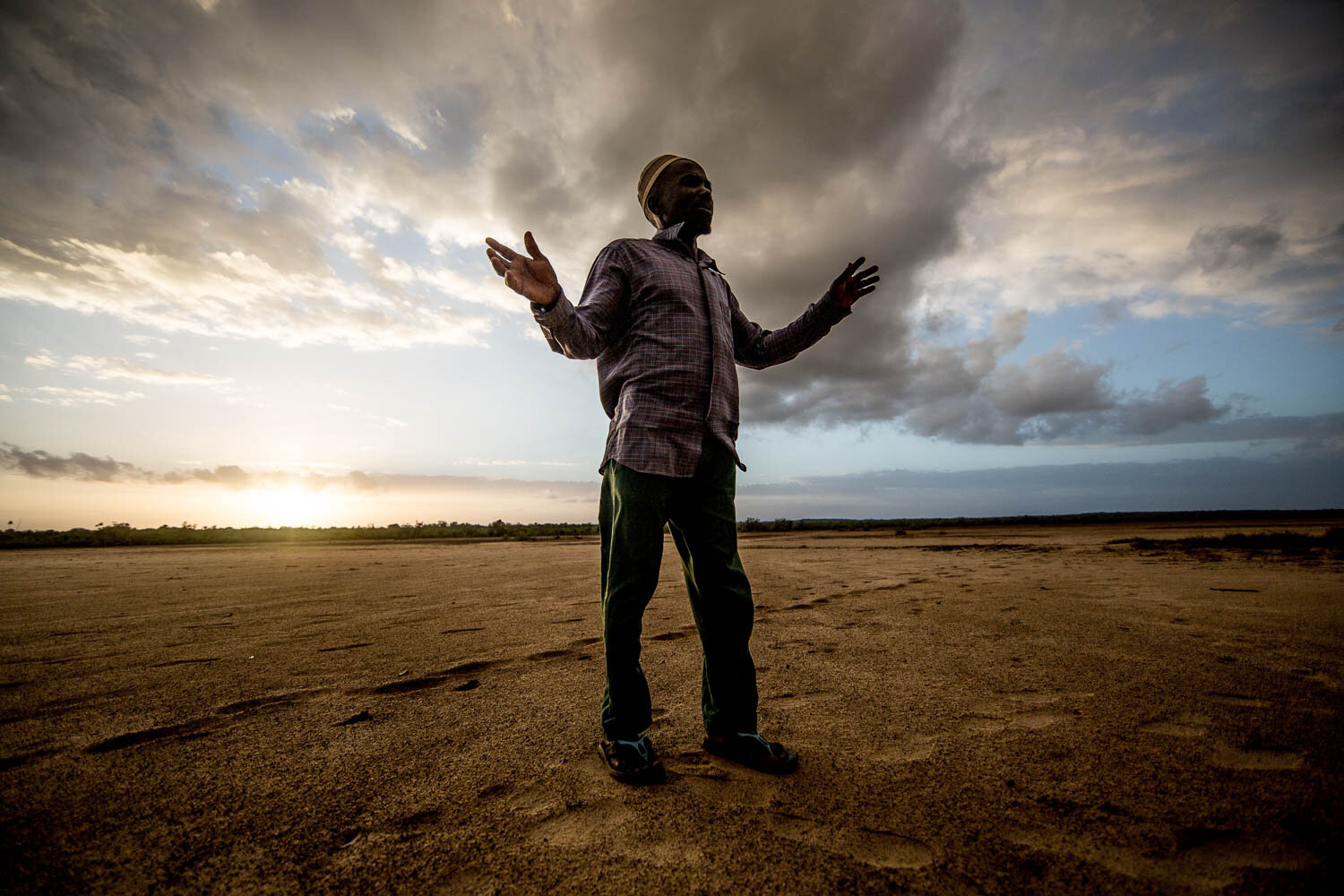
MOZAMBIQUE: PRIMEIRAS E SEGUNDAS ARCHIPELAGO
Dwindling fish stocks in Mozambique’s Primeiras e Segundas Archipelago are increasing pressures on land and marine resources across the coast.
Empty-handed, fisherman Fome Ali Buri gestures out to sea with the words “It’s over. The ocean is finished. When we fish, all we catch is sand.”
Outwardly, Mozambique is a booming and prosperous country, one of the world’s fastest growing economies with Scandinavia, Brazil, China and the U.S. among its foreign investors, thanks to enormous untapped oil and gas reserves in the north of the country. Yet over half its population remains in absolute poverty, surviving on less than a dollar a day. To feed and clothe their families, coastal Mozambicans are finding that they must combine livelihoods, with the majority both fishing and working the land to eke out a living.
Fisherman and farmer Ishmael Saïd remembers more fruitful years: “A long time ago, when I was young, one part of the population had jobs in companies, another group were only farmers, and yet another were only fishermen. ”
Now large numbers of people are heading out to sea when they are unable otherwise to place food on the table, and as a result the numbers of fish are declining rapidly. The more pressure on the marine environment, the more pressed the fishermen are to find fish. “Before, the situation was more balanced, because people could survive just by farming or working at a job.”
In 1975, at the time of its independence, Mozambique was the world’s leading producer of cashew nuts. Cashew processing was a major industry and employed a large proportion of the population. However, sixteen years of violent civil war followed, in which over one million lives were lost. Profits declined as a result of disruptive tax policies urged by the World Bank (a condition for over $400 million in loans). Finally, rampant disease ravaged the national orchards. The cashew industry collapsed, leaving thousands destitute.
In the twenty years since the civil war ended Mozambique has worked hard to rebuild itself, but recent economic successes have yet to filter down to poorer individuals, and the resources available to them remain under increasingly severe pressure. The fate of the cashew industry is a lesson for development going forward- calling attention to the pressing need for social stability (recent kidnappings by Renimo insurgents have prompted fears of a return to civil war), a diversity of livelihoods, and sound environmental management to keep resources healthy and available.
Local communities understand the environmental principles behind conservation efforts, but experience first hand the complications of implementing management plans.
“Rangers tell us not to use mosquito nets, and we know they catch too many fish,” says Jordao Aputal, captain of an artisanal fishing crew, “but if we use nets with bigger holes, we don’t catch many fish, and our families don’t have enough to eat.”
Without the diversity of alternative livelihoods coastal Mozambicans in the Primeiras e Segundas are presented with the hardest and most essential conflict: eating today, -or not eating today, in the hope of eating tomorrow. And if there is nothing to catch, they don’t eat at all.
In the global context, this is a question that in time will likely affect us all. It is worth keeping an eye on Mozambique then, as a pioneer for development and conservation amid an increasing scarcity of resources.























